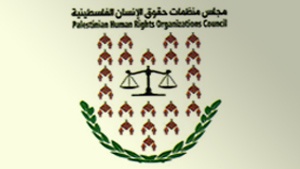The demonstrators reached the Al-Hambra Palace Hotel, located tens of metres from the Mukataa, where they discovered that between 15 and 20 Palestinian Special Forces officers, armed with batons, and approximately 10 members of the regular Palestinian police force, had formed a human barricade and were blocking the route to the Mukataa. Confrontations broke out between the protestors and the security personnel, with some demonstrators shouting political slogans in criticism of the Palestinian Authority (PA). A number of participants in the protest began using the flag poles that they were carrying and their hands to bang on the full-body plastic shields held by the Special Forces officers. In response, the Security Forces hit the protestors, including female participants, with batons. One police officer began cursing and using humiliating and dishonourable language directed at female participants, as well as accusing them of having been hired by non-governmental organisations (NGOs) to participate in the protest. Police officers later entered Ramallah Hospital and arrested protestors while they were in the process of being treated for injuries sustained during the confrontations.
The Palestinian Human Rights Organisations Council (PHROC) reaffirms that the rights to freedom of assembly and expression should be respected by the Palestinian Security Forces at all times and therefore condemns the suppression of peaceful protests. PHROC reiterates that the excessive force used by the Palestinian Security Forces is not justified by the fact that the protestors initiated the confrontations, because the response by the Security Forces was disproportionate to the threat posed by the demonstrators. PHROC believes that the Palestinian political leadership have adopted a policy of suppressing protests that contradict their own ideals and policies, whilst facilitating those that support their interests, by ensuring that the latter succeed in reaching the Mukataa and expressing their opinions.
Furthermore, the use by Security Forces of degrading and humiliating language directed at participants illustrates a disregard for the rights to freedom of assembly and expression. The role of the Security Forces is in fact to ensure that citizens can exercise these rights freely and without disruption. Whilst PHROC reiterates the importance of demonstrators carrying out protests in a peaceful manner, it is also gravely concerned by the use of force on behalf of Security Forces to prevent Palestinians from exercising their rights to freedom of assembly and expression.
In accordance with Article 26 of Palestinian Basic Law and Article 2 of the Palestinian Public Assemblies Law 12 of 1998, PHROC states that:
- The Palestinian Prime Minister must form an independent and impartial committee to investigate the circumstances behind the suppression of the peaceful protest and to ensure that those responsible for violating human rights are held accountable for their crimes. Those who are found guilty of such crimes must be adequately punished, including dismissal from their positions within the Security Forces;
- The PA must publish the procedure and results of an independent investigation and publicly apologise to the victims of these violations.
Regardless of continuous declarations of respect for human rights, including the rights to freedom of assembly and expression, by the PA, police officers and Special Forces officers, the reality has made clear that a culture of respect for citizens’ rights and freedoms is in fact absent among these bodies.
-Ends-



